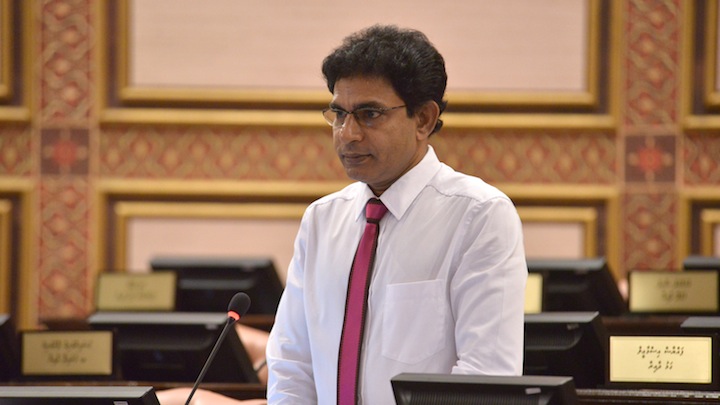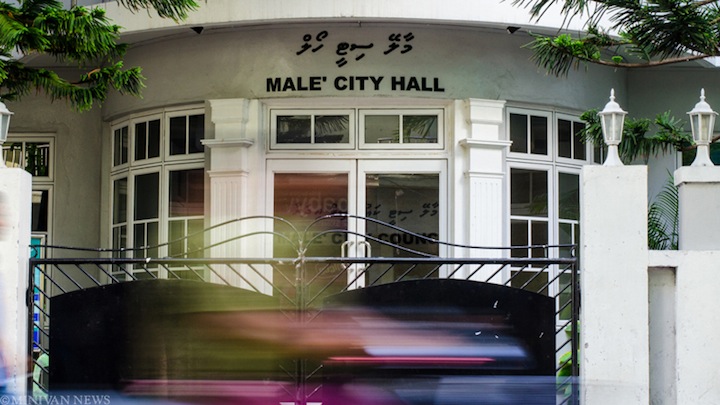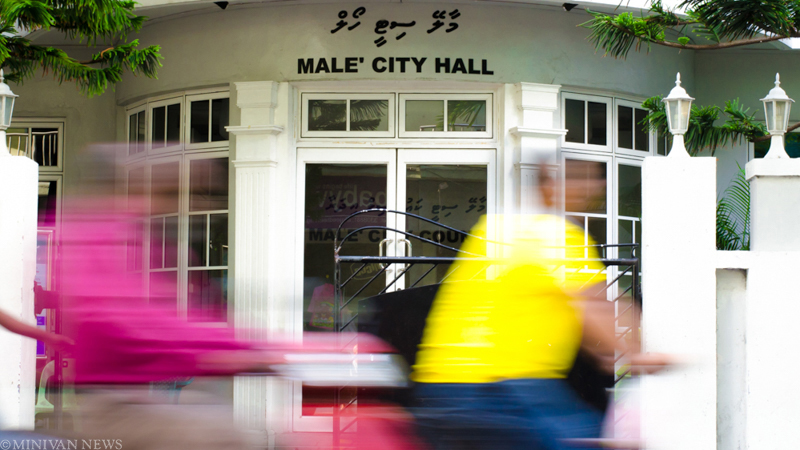Local Government Authority (LGA) board members have tabled a no-confidence motion against Chairperson and Minister of Defence Colonel (retired) Mohamed Nazim.
Board members Shamau Shareef and Shujau Hussein have told Minivan News that Nazim has refused to follow procedures in considering the motion.
“He should consider it immediately. He said he is president and he can do whatever he wants. He was very arrogant, and very childish,” said Shujau Hussein, the public’s representative on the board.
Following a proposal from another board member to postpone consideration of the motion today, four of the nine members signed a resolution to consider it on December 31. This resolution was rejected by Nazim, explained Shujau.
Formed under the 2010 Decentralisation Act, the LGA is tasked with overseeing and coordinating the work of the Maldives’ 199 city, atoll, and island-level councils.
Both Shujau and Malé City Councillor Shamau expressed concern that Nazim – also acting minister of health – was not working to protect decentralisation in the country.
“He is not standing up to protect the system,” suggested Shamau, who noted that the chair had failed to protect Malé City Council from persistent reduction of its powers.
“His answer was that, since he is sitting in the cabinet, he can’t speak against colleagues,” explained Shamau.
Shujau – who said he had presented 18 procedural issues to support today’s motion – pledged to take the matter to the Civil Court if it is not heard on December 31.
Removal of public lands from the purview of Malé City Council earlier this month left the opposition-dominated authority with next to no authority, after the gradual removal of powers since 2012.
Decentralisation
The original Decentralisation Act assigns a number of services and lands to the councils, though failure to make amendments to relevant legislation – particularly the Land Act and the Finance Act – has led to contradiction in the current laws.
The LGA board is tasked under the act with ensuring that “the work and activities of the councils created under this Act is functioning in accordance with the Constitution, this Act, and other Laws”.
When asked to comment on today’s events Nazim told Minivan News that he would have a spokesman explain what had been discussed at today’s meeting, though no spokesman had called at the time of publication.
Concerns over the government’s plans for decentralisation prompted councils from the country’s southernmost atolls to sign a pact to defend the system earlier this week.
The Medheaari Declaration – signed by the Gaaf Dhaalu, Gaaf Alifu, and Fuvahmulah atoll councils, and Addu City Council – calls upon the government to protect decentralisation, as well as making plans to secure fiscal autonomy.
“What happened in Malé, will it be repeated in the atolls?” asked Addu City Council Mayor Abdulla Sodig.
“We always have the fear that the government will come after Addu City Council after it deals with Malé City Council,” he told Minivan News.
Shujau explained that the southern pact had not been discussed at today’s LGA meeting
Recently proposed amendments to decentralisation – from pro-government MP Riyaz Rasheed – called for a reduced number of local councils and to cut the salaries of all councillors except the council presidents.
The government proposed similar changes in March of this year to the previous Majlis, with Nazim stating that the changes would allow professionals to hold council positions without having to leave their jobs.
The government has also expressed a desire to cut down on the cost of decentralised governance.
The current model of more than 1,000 elected councillors approved in 2010 by the then-opposition majority parliament was branded “economic sabotage” by the Maldivian Democratic Party (MDP) government, which had originally proposed limiting the number of councillors to no more than 220.
Related to this story
Malé City Council helpless as housing ministry takes over all land, public services staff
Can decentralisation take root in the Maldives?
Southern atolls sign pact to defend decentralisation
Likes (0)Dislikes
(0)Dislikes (0)
(0)
 (0)Dislikes
(0)Dislikes (0)
(0)

